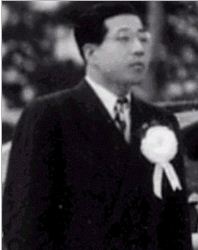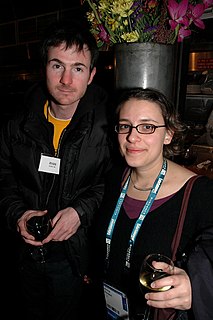A Quote by Rajneesh
If you get attached, then it becomes an obsession. If the person is not there, you are unhappy. If you miss the person, you are in misery. And attachment is such a disease that if the person is not there you are in misery, and if the person is there you are indifferent. Then it is okay; it is taken for granted. If the person is there it is okay - no more than that. If the person is not there, then you are in misery. This is attachment.
Related Quotes
If attachment is the conditioning factor, then non-attachment will become the unconditioning factor. If expectation leads you in misery, then non-expectation will lead you into non-misery. If anger creates a hell within you, then compassion will create a heaven. So whatsoever the process of misery, the reverse will be the process of happiness. Unconditioning means you have to understand the whole knotted phenomenon of human consciousness as it is.
The person in misery does not need a look that judges and criticizes but a comforting presence that brings peace and hope and life and says: 'you are a human person: important, mysterious, infinitely precious, what you have to say is important because it flows from a humn person; in you there are those seeds of the infinite, those germs of love... of beauty which must rise from the earth of your misery so humanity be fulfilled. If you do not rise then something will be missing... Rise again because we all need you... be loved beloved.'
To remain attached to the temporal, to the changing is to remain within the world of misery because the temporal will be taken away. You have invested so much in it but one day everything is taken away. Then it is natural to feel miserable. Misery is rooted in attachment to the body and bliss is rooted in non-attachment to the body; hence all the great masters have been teaching methods and means of non-attachment, of getting disidentified with the body, with the mind, with everything surrounds you, and of just remaining a pure witness. That's what we are: pure witnessing, pure awareness.
Everything comes out of nothingness and goes back into nothingness. Hence there is no need for attachment, because attachment will bring misery. Soon it will be gone. The flower that has blossomed in the morning, by the evening will be gone. Don't get attached; otherwise in the evening there will be misery. Then there will be tears, then you will miss the flower. Enjoy while it is. But remember, it has come out of nothing, and it will go back to nothing. And the same is true about everything, even about people.
I do not invent characters. There they are. That's who they are. That's their nature. They talk and they behave the way they want to behave. I don't have a character behaving one way, then a point comes in the play where the person has to either stay or leave. If I had it plotted that the person leaves, then the person leaves. If that's what the person wants to do. I let the person do what the person wants or has to do at the time of the event.
Forgiveness depends on the person. If he's saying sorry to make himself comfortable, then don't forgive him. If he's asking for forgiveness sincerely, then it's okay to forgive him. If you don't know what's on that person's mind... It's easy. Watch carefully how that person has lived up to now, and how he's living right now.
What I see is trying to make sure that everybody thinks you have more than what you actually have. What’s the point if you actually don’t have it? If you don’t have it, then you don’t have it. Have what you have. Enjoy that . . . The craft is everything. Don’t be afraid of not being the wealthiest person in the room. Be the smartest person in the room. Be the slickest person in the room. Be the most creative person in the room. Be the most entertaining person in the room. Just be in the room.
Modern infidelity is different than traditional infidelity and sits on top of the romantic ideal that you find "the one" and that if you have everything that you need at home, you have no reason to go looking elsewhere. And if you have an affair, it's a symptom of a flawed relationship. If you don't apply the deficiency model to the relationship, then you apply it to the person. The person who strays is selfish, immature, addicted suffers from insecure attachment. And the person who doesn't stray is the committed partner: mature, stable, and non-selfish.


































